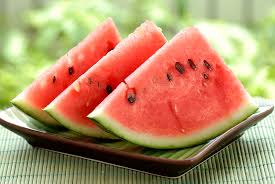Here’s a List of Foods to Eat Before and After an Energetic Yoga Session
Hectic schedules, wrong eating habits, and long working hours take a toll on your health. With the number of life-threatening diseases on the rise, many people have started practicing yoga on a regular basis. Whether you want to lose weight, get peace of mind or beautiful skin, or just want to stay fit, yoga is the simple answer to all. Considering the importance of yoga, June 21st is celebrated as International Yoga Day every year. However, just practicing yoga is not enough. Many of you may not be aware of the fact that what to eat before and after yoga can have a great impact on the results that you get. To help you out, on this International Yoga Day, we provide you with a detailed list of foods to eat before and after the yoga session. Read on.
What Food to Eat Before Yoga Session?
1. Apples

Apples are not only helpful in losing weight but are also a great food option before you start your yoga session. Apples hydrate you, clean your teeth and also supply sugar to your body. In addition to these advantages, apples are also a good source of Vitamin C. The fiber present in apples ensures that you don’t feel hungry during the yoga session.
2. Melons

Watermelons contain 90% water and at the same time are low in acids. Melons play a vital role in helping you stay hydrated throughout the yoga session. This wonder fruit helps you stay energized and you don’t face the problem of heartburn while practicing yoga.
3. Oatmeal or Quinoa

Oatmeal is a miracle food that not only helps you lose weight but also keeps you full for a longer period of time. However, ensure that you eat oatmeal at least an hour ago. Oatmeal is high in magnesium, which keeps your energy levels high and resists muscle cramps. If you are not a big fan of oatmeal, you can also go for quinoa which also contains high proteins similar to oatmeal.
4. Almonds

If you have just started your yoga sessions, you may lack energy. To overcome this, a handful of almonds just before the yoga classes can boost your energy and can also keep you full. Almonds are rich in Vitamin E, magnesium, and potassium, which keep you energized during the yoga session.
5. Fruit Smoothies

Healthy smoothies made at home make great pre-workout food. Smoothies provide you with the essential nutrition and also keep your body hydrated. Mix your favorite fruits and yogurt to prepare a delicious and filling smoothie that will keep you energized and full for a long time.
Post-Yoga Session Foods and Drinks
1. Water

Water is an important and miracle drink that you shouldn’t skip after a yoga session. Eating something healthy is necessary after yoga, but it is very important to drink water post-yoga sessions. Always remember to drink plenty of plain water after the yoga session. Ensure that the water is safe and free from impurities so as to avoid any health issues. You can also opt for coconut water or drink lemon juice (unsweetened) post-yoga session. Use water purifier for pure and healthy water.
2. Green Tea

Many people have an extra liking for tea and sip a cup of sugary tea right after they are back from their yoga session. If you are one of them, it’s time to ditch the habit and switch to green tea. Loaded with antioxidants, green tea provides numerous health benefits. Green tea helps in regulating your blood circulation and is also a great stress buster.
3. Vegetable Salads

Eating a calorie-laden sandwich right after your yoga session will do more harm than good. Instead, you need to opt for healthy options such as vegetable salads post yoga sessions. Add your favorite green leafy vegetables, sprinkle some pepper, and a few drops of olive oil to relish the healthy salad.
4. Vegetable Soup

A hot bowl of vegetable soup right after your yoga session provides the necessary nutrients that your body needs. However, ensure that you avoid packaged soups as these contain excess salt. Prepare fresh soup at home using your favourite vegetables such as carrots, spinach, cabbage, and celery.
5. Scrambled Eggs and Whole Wheat Bread

Whole wheat bread and scrambled eggs are perfect post-yoga foods. However, ensure that you eat this only after your morning yoga session. When it comes to eggs, avoid eating the yolk and include only egg whites. Whole wheat bread consists of complex carbohydrates that keep you energized whereas egg whites help you stay energized.
Check this out if you are looking for morning yoga for begginers.
What Are The Health Benefits of Yoga?
Yoga offers a wide array of positive and health benefits of yoga impacts on physical, mental, and emotional well-being. Below is an overview of the primary health advantages associated with engaging in yoga:
1. Enhanced Flexibility:
Through a variety of poses and stretches, yoga enhances flexibility by elongating and loosening muscles, ultimately expanding the range of motion in joints.
2. Strength Development:
Numerous yoga poses necessitate supporting your body weight, fostering increased muscle strength, particularly in essential areas like the core, arms, legs, and back.
3. Stress Alleviation:
Yoga seamlessly integrates relaxation methods, controlled breathing, and mindfulness, culminating in reduced stress levels and an elevated sense of relaxation.
4. Optimized Posture:
Yoga cultivates consciousness of bodily alignment, leading to improved posture and diminished strain on the spine and muscles.
5. Balance and Coordination Improvement:
Yoga poses provide an effective challenge to balance and coordination, elevating stability and heightening body awareness.
6. Pain Alleviation:
Regular yoga practice holds the potential to mitigate chronic pain ailments—such as back pain, arthritis, and migraines—through the augmentation of flexibility, muscle strength, and relaxation.
7. Cardiovascular Health Enhancement:
More dynamic yoga styles like Vinyasa can furnish a cardiovascular workout that supports heart health, circulation, and endurance.
8. Respiratory Benefits:
Yoga accentuates mindful breathing techniques, which bolster lung capacity and oxygenation, ultimately enriching respiratory well-being.
9. Boosted Immune System:
Yoga’s ability to curtail stress and induce relaxation exerts a positive influence on the immune system, enhancing overall health.
10. Enhanced Mental Clarity:
Meditation and mindfulness practices within yoga amplify focus, concentration, and cognitive function, thereby fostering mental clarity.
11. Emotional Equilibrium:
Yoga fosters emotional well-being by heightening self-awareness, enabling stress management, and mitigating anxiety.
12. Enhanced Sleep Quality:
Yoga’s relaxation techniques contribute to elevated sleep quality and can even assuage insomnia.
13. Detoxification:
Certain yoga poses invigorate circulation and facilitate the expulsion of toxins by enhancing organ function.
14. Mind-Body Connection:
Yoga cultivates a deeper alliance between mind and body, propelling self-care and acceptance.
15. Holistic Fitness:
Yoga amalgamates strength, flexibility, balance, and relaxation, offering a comprehensive approach to fitness.
Last Few Words
A great form of exercise, Yoga is practiced by people from all over the world. Yoga can help you soothe your body and mind by helping you focus and improve your eating habits. The list of foods that you need to eat before and after your yoga sessions can help move toward a healthy lifestyle. The thumb rule is to eat right and at the same time eat light to get the maximum benefits.
Frequently Asked Questions
1. Can I eat immediately after yoga?
Is it okay to eat right after practicing yoga? Having a balanced meal that includes protein, complex carbohydrates, and healthy fats can support muscle recovery and energy replenishment. It’s advisable to avoid overeating to prevent discomfort during your practice.
2. Is it compulsory to eat after yoga?
No, consuming food after yoga isn’t mandatory. The health benefits of yoga extend regardless of immediate post-practice eating. Optimal digestion might occur if you wait a bit before eating, allowing your body to settle. Prioritize hydration and choose nutrient-rich foods when you decide to eat.
3. When not to do yoga?
Yoga should be avoided when you’re ill, have a fever, or are in acute pain or injured. It’s also best not to practice immediately after eating a substantial meal. Pregnant individuals should consult a healthcare provider for appropriate modifications. If unsure about your health or attempting advanced poses, seek professional guidance, especially with chronic conditions.





